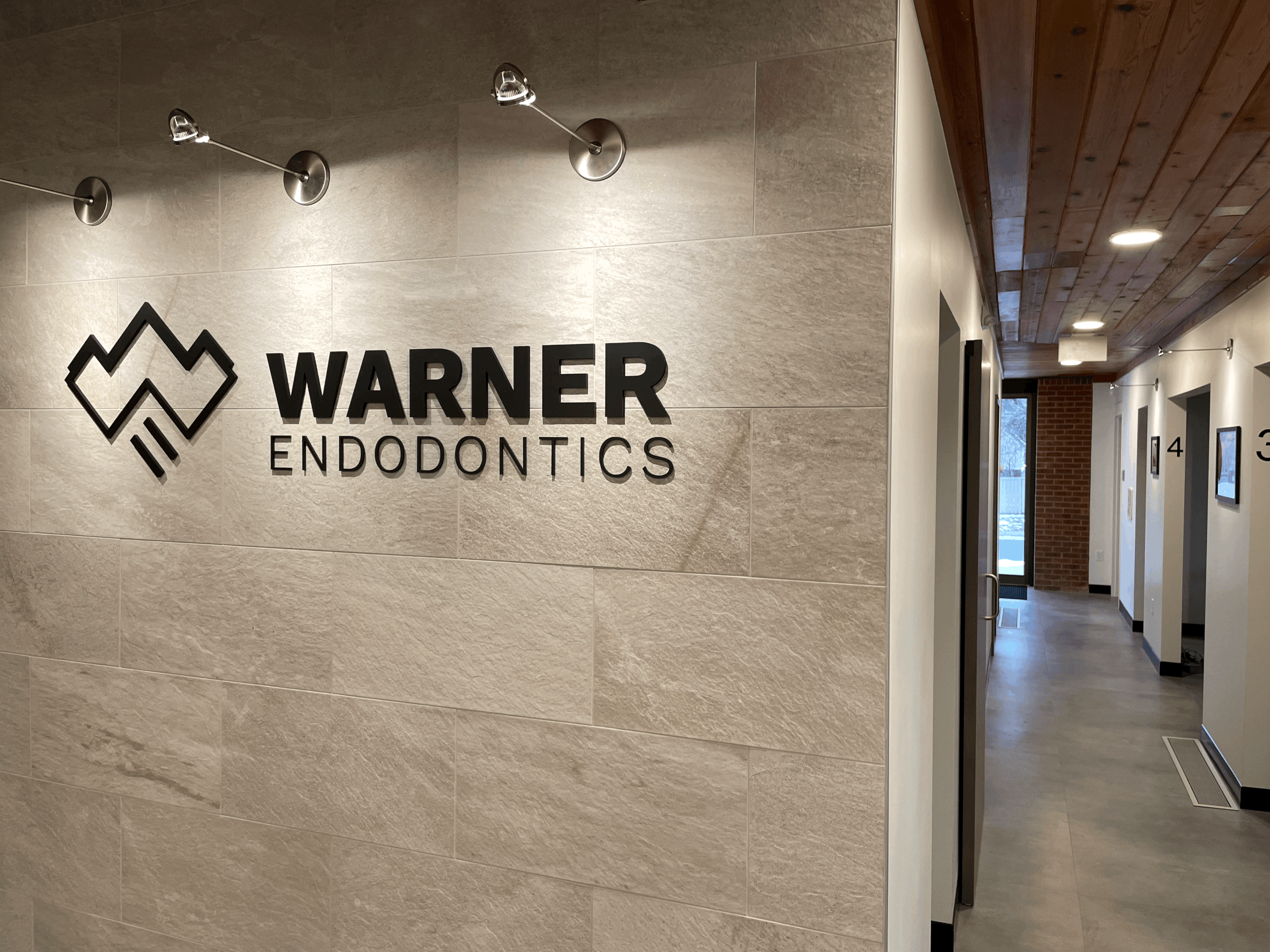What are common symptoms that may indicate need for a root canal?
Sensitivity to cold air or liquids, hot liquids, chewing, or biting may indicate inflammation or infection within a tooth. Unprovoked, spontaneous pain is also a sign that a tooth may need a root canal. A localized swelling or bump on the gum can be a sign of an infected tooth.
How much pain will I expect during the procedure?
Although pain is often associated with a tooth that needs root canal treatment, the procedure does not have to be painful. Care will be taken to completely and profoundly numb the tooth. Today, there is no reason why any dental procedure cannot be performed 100% pain-free.
We utilize the DentalVibe® device to help eliminate pain from local anesthetic injections. DentalVibe® gently massages the nerves and tissue around the injection site sending vibrations that block pain signals from reaching the brain. A better dental injection leads to a better dental experience.
Do you offer sedation?
We offer nitrous oxide or medication anxiolysis (Halcion). For patients requesting IV sedation, a third-party dental anesthesiologist or nurse anesthetist can be arranged. This will require a consult first with treatment to be scheduled on a subsequent date to allow for the scheduling of the sedation specialist.
Do you offer any payment plans?
We offer CareCredit for those choosing to spread the cost of treatment over 6 or more months. The 6-month plan offers no interest if paid in full by the end of the promotional period. We also offer longer payment plans that can lower your monthly payment but will charge interest from the date of service.
What should I expect to feel after the procedure?
It is normal to feel some tenderness in the area for a few days after your root canal treatment as your body undergoes the natural healing process. You may also feel some tenderness in your jaw from keeping it open for an extended period of time. These symptoms are temporary and usually respond very well to over-the-counter pain medications (Advil, Motrin, Tylenol, etc.). It is important for you to follow the instructions on how to take these medications. Remember that narcotic medications, if prescribed, may make you drowsy, and caution should be exercised in operating dangerous machinery or driving a car after taking them.
Your tooth may continue to feel slightly different from your other teeth for some time after your root canal treatment has been completed. However, if you have severe pain or pressure that lasts more than a few days, contact the office.
Do not eat anything until the numbness in your mouth wears off. This will prevent you from biting your cheek or tongue.
Do not chew or bite on the treated tooth until you have had it restored by your dentist. This is to prevent further breakdown of the weakened tooth until it is properly restored.
Be sure to brush and floss your teeth as you normally would. Depending on the case, flossing in the area may be contraindicated.
If the opening in your tooth was restored with a temporary filling material, it is not unusual for a thin layer to wear off in-between appointments. However, if you think the entire filling has come out, contact the office.
Contact the office right away if you develop any of the following:
a visible swelling inside or outside of your mouth;
an allergic reaction to medication, including rash, hives or itching (nausea is not an allergic reaction);
a return of original symptoms; or
your bite feels uneven.
What do I need to do following root canal treatment?
After a root canal, it is important to follow-up with your restorative dentist so that he or she may place a permanent restoration on the tooth. Often a crown is recommended in order to protect the tooth and provide a tight seal over the root canal.
How successful is root canal treatment?
A tooth receiving root canal therapy can expect a success rate of up to 96%. Prognosis depends upon the pre-op status of the tooth and several other factors that will be discussed with you upon examination. Overall, root canal therapy is one of the most successful and predictable procedures in dentistry.
Is root canal treatment safe?
Root canal treatment is an extremely safe and effective procedure. Despite what misinformation has been posted on the internet, there is no scientific evidence linking root canal therapy to disease in other areas of the body. Please view the following video for questions about root canal safety:

